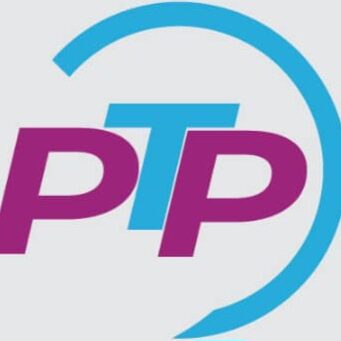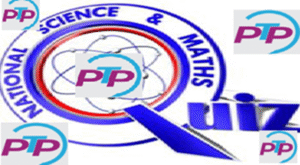GES 2025 Promotion Exam Material; Guiding Policies for Curriculum Development and National Teachers’ Standards.

Guiding Policies for Curriculum Development and National Teachers’ Standards.
Education is defined and regulated by a series of Acts, Legislative Instruments, and Administrative Directives based on the laws on education as contained in the Constitution of Ghana.
Articles 25 and 38 of the 1992 constitution provide the direction of education in the country.
1992 Constitution of Ghana
- The 1992 Constitution of Ghana defines Basic Education as the minimum formal education with which every Ghanaian child is entitled to be equipped as a right, to function effectively in society.
- That is, Basic Education connotes the provision of opportunities that will provide graduates with the 21st Century attributes of well-rounded and engaged citizens.
- Currently, this constitutes the foundation of the structure of pre-tertiary education in Ghana (i.e., Kindergarten, Lower Primary, Upper Primary, Junior High School, and Senior High School).
Specifically, Article 25 states that:
- Basic Education is free, compulsory, and available to all.
- Secondary Education, including TVET, is to be generally available and accessible and will be progressively made free (in this reform, Basic Education is used as a concept that includes secondary education)
Education Act 778 of 2008
UN Sustainable Development Goals
UNESCO Education 2030 Framework for Action National Teachers’ Standards
National Teacher Education Curriculum Framework,
ICT for Accelerated Development (ICT4AD) Policy Framework
ICT in Education Policy
Adolescent Reproductive Health Development Ghana Reading Action Plan
National Science, Technology, and Innovation Policy
You may also read:
-
Knowledge of the Ministry of Education (MoE) and the Ghana Education Service (GES).
-
Major Areas to Cover and Basic Principles in Answering True/False, Multiple Choice, And Fill-In-The-Blank Questions.
-
Test Practical on Prawn/Crayfish, Crab, and Woodlouse.
-
ASSESSMENT, PRINCIPLES OF ASSESSMENT AND EVALUATION.
NATIONAL TEACHERS’ STANDARDS
Purpose of the National Teachers Standards
- For Pre-service and In-service Teachers
- Teachers play such a critical role in inspiring and challenging learners to achieve their potential that their training and subsequent development require the highest possible standards in knowledge, conduct, and practice in the workplace.
- These Standards are concise written statements of what teachers are expected to know and be able to do.
- The National Teachers’ Standards set out the minimum levels of practice that all trained teachers must reach by the end of their pre-service teacher education course to play such a critical role.
- These Standards also inform teachers’ development while in their first year as Beginning Teachers on their induction course in schools prior to licensing as professional teachers by the National Teaching Council (NTC) and provide the framework for future professional and career development for all teachers.
- The Standards should be seen as one common core set of standards that apply to all teachers at all levels.
- The exemplars that accompany the Standards at the end of these guidelines give specific exemplars of the Standards in action at the kindergarten, primary, junior high school, and senior high school levels to give further support for those using them.
The indicators provide evidence of attainment of the Standards.
For In-Service Teachers:
Specific to in-service teachers, the Pre-tertiary Teachers’ Standards for Ghana (PTTSG) are concise statements of what teachers are expected to know, understand, and be able to do as teachers to ensure they continually improve their own learning as well as those they teach.
The Standards aim at ensuring that as teachers move up from one rank to the other in their career, they are empowered to engender effective learning among those they are expected to teach.
At each stage of their journey to become accomplished teachers, the Standards expect teachers to:
- demonstrate good knowledge in the relevant subject(s) and curriculum areas;
- have a sound knowledge of learners’ different ways of organising their learning;
- demonstrate knowledge and understanding of how different learning styles impact teaching;
- reflect thoroughly on the effectiveness of teaching approaches;
- demonstrate good knowledge and understanding of how to use assessment to support learning; and
- identify their own training needs and take responsibility for addressing them through lifelong learning.
The Standards Apply To:
- Student Teachers on pre-service teacher training courses are working towards meeting the Standards by the end of their course.
- All beginning teachers in their Induction Year in schools.
- All in-service teachers in schools who are covered by the 2016 new NTC frameworks for career progression and promotion. The Standards serve as a point of reference for all standards and competencies.
- The National Teaching Council (NTC) will use the Teachers’ Standards in assessing cases of any misconduct by any member of the teaching profession.
- The National Teaching Council (NTC) for the licensing of teachers after induction
- The NTC will use the Teachers’ Standards as a benchmark for the renewal of teachers’ licenses
- All those institutions involved in the training and development of teachers, including universities and colleges, both public and private, vocational/technical, and academic.
- Teacher educators will use it as a guide in the preparation of curricula and courses for teacher training.
- District education directors, circuit supervisors, teacher unions, head teachers, and mentors in schools will also need to use the Teachers’ Standards as a guide to inform their work, serving as a common point of reference.
The development of the Standards arose from the need to consolidate the different standards being used in institutions offering initial teacher training and those who provide continuing professional development into a national standard to ensure that the development of student teachers is guided by the same set of standards.
The Standards were developed from several sources, including:
- Assessment tools used by the University of Cape Coast (UCC) and the University of Education, Winneba (UEW) for assessing student teachers during on-campus teaching and practicum
- Handbook for Principal Teacher Aspirants by the Ghana Education Service
- Manual for Student Teachers on School Attachment
- Handbook on Mentorship and the Student Teacher Competence Matrix
- Survey of national teaching standards in more than eight countries
- Involvement of practitioners across all sectors and other key stakeholders including the National Teaching Council (NTC), National Council for Tertiary Education (NCTE), National Accreditation Board (NAB), Ghana Education Service (GES), National Council for Curriculum and Assessment (NaCCA), National Inspectorate Board (NIB), Principals of Colleges of Education, Teacher Unions and Teacher Education Universities (UCC and UEW).
THE LEGAL STATUS OF THE TEACHERS’ STANDARDS.
The 2008 Education Act (Act 778) established the National Teaching Council and which is responsible for establishing frameworks around teachers’ employment, continuous professional development (CPD), and periodic review of professional practice and ethical standards.
The NTC has overall responsibility for licensing teachers by law.
These Standards define the minimum levels of practice expected of student teachers and teachers to be licensed.
It must be noted that during the training and the period of induction, the Standards continue to define the level of practice at which all qualified teachers are expected to perform.
-
Knowledge of the Ministry of Education (MoE) and the Ghana Education Service (GES).
-
Major Areas to Cover and Basic Principles in Answering True/False, Multiple Choice, And Fill-In-The-Blank Questions.
-
Test Practical on Prawn/Crayfish, Crab, and Woodlouse.
-
ASSESSMENT, PRINCIPLES OF ASSESSMENT AND EVALUATION.
PHILOSOPHY UNDERPINS THE STANDARDS
Teacher education in Ghana aims to prepare teachers imbued with professional skills, attitudes, and values as well as the spirit of inquiry, innovation, and creativity that will enable them to adapt to changing conditions, use inclusive strategies, and engage in lifelong learning.
The teachers are required to have a passion for teaching and leadership, engage with members not only in the school community but also in the wider community, and act as agents of change.
HOW ARE THE TEACHERS’ STANDARDS ORGANISED?
The Standards are divided into three main domains, each with its own subdivisions:
Professional Values and Attitudes:
Professional Development
The Teacher(s):
- Critically and collectively reflect to improve teaching and learning.
- Improves personal and professional development through lifelong learning and Continuous Professional Development.
- Demonstrates effective growing leadership qualities in the classroom and wider school.
Community of Practice
The Teacher:
- Is guided by legal and ethical teacher codes of conduct in his or her development as a professional teacher.
- Engages positively with colleagues, learners, parents, School Management Committees, Parent-Teacher Associations, and wider public as part of a community of practice.
- Develops a positive teacher identity and acts as a good role model for students
- Sees his or her role as a potential agent of change in the school, community, and country
Professional Knowledge
The teacher should understand how children develop and learn in diverse contexts (cultural, linguistic, socioeconomic, and educational backgrounds) and apply this knowledge in their teaching.
Knowledge of Educational Frameworks and Curriculum
The Teacher:
- Demonstrates familiarity with the education system and key policies guiding it
- Has comprehensive knowledge of the official school curriculum, including learning outcomes.
- Has secure content knowledge, pedagogical knowledge, and pedagogical content knowledge for the school and grade they teach in.
- At pre-primary and primary, the teacher knows the curriculum for the years appropriate to multigrade classes; has good knowledge of how to teach beginning reading and numeracy, speaking, listening, reading, and writing, and to use at least one Ghanaian language as a medium of instruction.
Knowledge of Learners
The Teacher:
- Understands how children develop and learn in diverse contexts and applies this in his or her teaching.
- Takes account of and respects learners’ cultural, linguistic, socio-economic, and educational backgrounds in planning and teaching.
Professional Practice
The teacher should employ a repertoire of learning strategies to meet the learning needs of all children through the application of relevant resources
Managing the Learning Environment
The Teacher:
- Plans and delivers varied and challenging lessons, showing a clear grasp of the intended outcomes of their teaching.
- Carries out small-scale action research to improve practice.
- Creates a safe, encouraging learning environment.
- Manages behaviour and learning with small and large classes.
Teaching and Learning
The Teacher:
- Employs a variety of instructional strategies that encourage student participation and critical thinking.
- Pays attention to all learners, especially girls and students with Special Educational Needs, ensuring their progress.
- Employs instructional strategies appropriate for mixed-ability, multilingual, and multi-age classes.
- Sets meaningful tasks that encourage learner collaboration and lead to purposeful learning.
- Explains concepts clearly using examples familiar to students.
- Produces and uses a variety of teaching and learning resources, including ICT, to enhance learning.
Assessment.
The Teacher:
- Integrates a variety of assessment modes into teaching to support learning.
- Listens to learners and gives constructive feedback.
- Identifies and remediates learners’ difficulties or misconceptions, referring learners whose needs lie outside the competency of the teacher.
- Keeps meaningful records of every learner and communicates progress clearly to parents and learners.
- Demonstrates awareness of national and school learning outcomes of learners.
- Uses objective criteria to assess learners.





3 thoughts on “GES 2025 Promotion Exam Material; Guiding Policies for Curriculum Development and National Teachers’ Standards.”